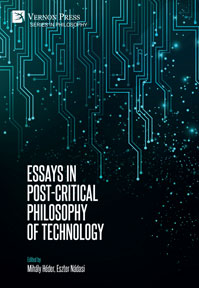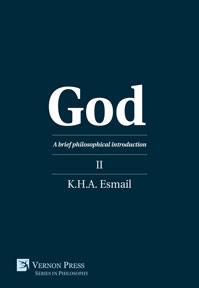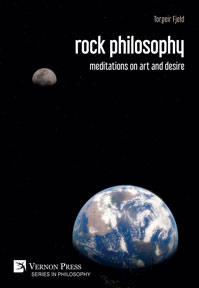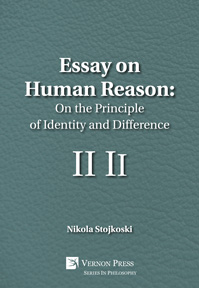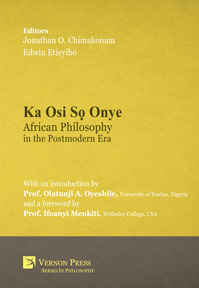Search
Browse
by Publication status
by Subject
Anthropology (26) Art (122) Business and Finance (25) Cognitive Science and Psychology (53) Communication and Journalism (43) Economics (61) Education (65) History (145) Human Geography (22) Interdisciplinary (40) Language and Linguistics (128) Law (16) Music Studies (18) Philosophy (153) Political Science and International Relations (99) Sociology (295) Statistics and Quantitative Methods (19)by Series
Series in Literary Studies (62) Series in Philosophy (58) Series in Education (49) Series in Sociology (42) Series in World History (31) Series in Politics (30) Bridging Languages and Scholarship (27) Series in Language and Linguistics (25) Cognitive Science and Psychology (20) Series in Philosophy of Religion (20) Series in American History (19) Series in Art (19) Critical Perspectives on Social Science (16) Series in Cinema and Culture (16) Curating and Interpreting Culture (15) Series on the History of Art (14) Series in Anthropology (13) Series in Critical Media Studies (13) Economics (13) Series in Business and Finance (12) Series in Music (12) Series in Communication (9) Series in Performing Arts (9) Philosophy of Personalism (8) Series in Law (8) Series in Economic Methodology (7) Series on Climate Change and Society (7) Classics in Economics (6) Series in Economic Development (6) Women's Studies (6) Philosophy of Forgiveness (5) Series in Built Environment (5) Series in Economic History (5) Series in Philosophy of Science (4) Series in Social Equality and Justice (4) Series on the History of Science (4) Serie en Sociología (3) Series in Contemporary History (3) Series in Creative Writing Studies (3) Series in Design (3) The Interdisciplinary Built Environment (3) Serie En Estudios Literarios (2) Series in Heritage Studies (2) Series in Innovation Studies (2) Serie en Ciencias Políticas (1) Serie en Comunicación y Medios (1) Serie en Entorno Construido (1) Serie en Estudios Culturales (1) Serie en Filosofía (1) Serie en Filosofía de la Ciencia (1) Serie en Música (1) Series in Classical Studies (1) Series in Economics of Technological Change (1) Series in Philosophy of Race (1) Series in Urban Studies (1)by Language
English Spanishby Author
Browsing with filters
Essays in Post-Critical Philosophy of Technology
Edited by
Mihály Héder, Budapest University of Technology and Economics (BUTE), Hungary
and Eszter Nádasi, Budapest University of Technology and Economics (BUTE), Hungary
Availability: In stock
170pp. ¦ $42 £32 €36
Technology, in all its forms, has had and continues to have an indisputable impact on society and culture. Philosophy of technology seeks to understand this impact and the meaning of technology for society and culture. Although its origins can be traced back to the Greeks, it wasn’t until the late 19th century to the beginning of the 20th century that it gained ground as a philosophical discipline. Now more than ever it is considered an essential philosophical enterprise. ‘The Budapest Workshop on Philosophy of Technology’ was a lively and successful event that sought to discuss, reflect on and apply this branch of philosophical inquiry to both historical and contemporary examples. Importantly, the contributors’ methodological approaches were influenced by, although not limited to, Michael Polanyi’s term ‘post-critical’. Moving beyond the rigidity of past approaches, the selected essays were driven by two lines of inquiry, what has been the historical role of technology in social and scientific change? And, how can a ‘post-critical’ approach enhance and extend our understanding of philosophy of technology? This edited volume begins by exploring the role of technology in social and scientific developments from a historical perspective, before moving towards a discussion of philosophy of technology from a ‘Post-Critical’ epistemic stance. Free from the constraints of previous methodologies, the third part of this work engages with the term ‘Post-Critical’ in its broadest sense. The contributors to this section consider the phenomenology of the body and the influence of technology on our lives. Finally, the four concluding chapters of this book apply this philosophical approach to a wide range of contemporary problems from Decision Support Systems to Crisis Communication.
God: A brief philosophical introduction II
K.H.A. Esmail, University of Cambridge
Availability: In stock
369pp. ¦ $66 £50 €56
This is a clear and original investigation of God's nature and existence. First of all, it considers two of God’s traditional properties: being all-knowing and being all-powerful. It argues he cannot possess these properties. But, it argues this is in accord with him being worthy of worship. Secondly, it introduces the notion of evil being “overridden”. It argues he has to bring about other free living things and it is plausible they have to be liable to experience evil due to their conditions. But, it argues the evil in this world is “overridden”. Thirdly, it considers the principal arguments for the claim he does not exist. (They refer to the evil in the world.) It argues they do not establish sufficient grounds for this claim. Finally, it considers some well-known arguments for the claim he exists. It argues they face difficulties. It sets out other arguments: eg, some arguments to increase any degree of belief one has that God can exist. It includes a number of Appendices: God’s sovereignty; Are there sufficient grounds for the claim that, very probably, God does not exist?; Theodicy and some theodicies; .... It covers as a whole the principal parts of the Philosophy of Religion. It unifies these parts to a significant degree. It proceeds regularly by way of formal and clear arguments. It will be of interest to advanced students and specialists in Philosophy, Religious Studies and Theology. Given its explanation of key terms, its jargon-free language, its clarity and brevity.... , it will be of interest to others, too.
rock philosophy: meditations on art and desire
July 2018 / ISBN: 978-1-62273-441-2Availability: In stock
144pp. ¦ $55 £39 €45
Is the creative act like a volcano: an outburst that lights up the universe? This volume connects reason with desire and the arts in ways that enable us to imagine how creativity can bring us closer to the truth. The artistic quest for freedom stands in stark contrast to philosophy's call to subordinate art to reason and tradition. The struggle between them has culminated in artistic attempts to subsume philosophical matters within the domain of art. One central question in this study is what the consequences will be of a final dissolution of the boundary between the two domains: will all that remains of the artwork be an abstract howl of the rock – our rock, the planet – itself?
Essay on Human Reason: On the Principle of Identity and Difference
February 2018 / ISBN: 978-1-62273-379-8Availability: In stock
136pp. [Color] ¦ $55 £42 €48
The nature of human reason is one of the thorniest of mysteries in philosophy. The reason appears in many specific forms within general areas such as cognition, thinking, experiencing beauty, and moral judgment. These forms are “perfectly” known in philosophy, yet an unknown pattern has been noticed which shows us that they are all a variation of the same theme: truth is an identity relation between the “thought” and “reality”; justice is an identity relation between the given and the deserved; beauty is an identity relation as rhyme is an identity relation between the final sounds of words; rhythm is an identity relation between time intervals; symmetry is an identity relation between two halves; proportion is an identity relation between two ratios; anaphora is an identity relation between the initial words. Particular things are identities in themselves and universals are identities between particulars. One idea associates another idea identical to it; an analogy is an identity between relations; induction is an identification between the known and unknown instances; and all the logic rests on the law of identity. What is common for all of them is the nature of reason itself.
Ka Osi Sọ Onye: African Philosophy in the Postmodern Era
Edited by
Jonathan O. Chimakonam, University of Pretoria, South Africa
and Edwin Etieyibo, University of the Witwatersrand
Availability: In stock
394pp. ¦ $67 £50 €57
This collection is about composing thought at the level of modernism and decomposing it at the postmodern level where many cocks might crow with African philosophy as a focal point. It has two parts: part one is titled ‘The Journey of Reason in African Philosophy’, and part two is titled ‘African Philosophy and Postmodern Thinking’. There are seven chapters in both parts. Five of the essays are reprinted here as important selections while nine are completely new essays commissioned for this book. As their titles suggest, in part one, African philosophy is unfolded in the manifestation of reason as embedded in modern thought while in part two, it draws the effect of reason as implicated in the postmodern orientation. While part one strikes at what V. Y. Mudimbe calls the “colonising structure” or the Greco-European logo-phallo-euro-centricism in thought, part two bashes the excesses of modernism and partly valorises postmodernism. In some chapters, modernism is presented as an intellectual version of communalism characterised by the cliché: ‘our people say’. Our thinking is that the voice of reason is not the voice of the people but the voice of an individual. The idea of this book is to open new vistas for the discipline of African philosophy. African philosophy is thus presented as a disagreement discourse. Without rivalry of thoughts, Africa will settle for far less. This gives postmodernism an important place, perhaps deservedly more important than history of philosophy allocates to it. It is that philosophical moment that says ‘philosophers must cease speaking like gods in their hegemonic cultural shrines and begin to converse across borders with one another’. In this conversation, the goal for African philosophers must not be to find final answers but to sustain the conversation which alone can extend human reason to its furthermost reaches.

